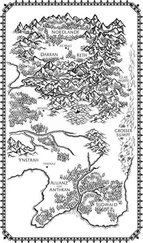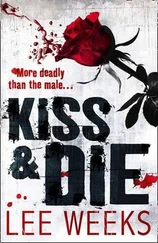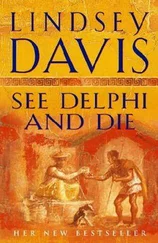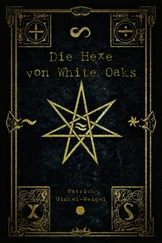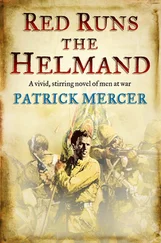‘What are your impressions of the new draft, Carmichael?’
Carmichael's hair was still wet from the tub, his skin glowing from the run.
‘Good enough, sir, but I wonder if their own regiments will have given them the discipline that they'll need to stand up to shot and shell?’
‘Well, we'll have to see about that.’ Eddington replied. ‘My only worry is that by the time we've got stuck into this war, wherever it's going to be, all those regiments that have sent men to us will need them themselves. Mark you, whatever bit of “the East” we're going to, the Russians will fight like fury and every bit of the navy and the army will be needed.’
Morgan agreed with Eddington. The newspapers had all been warning of the power of Russia, her tenacity against Napoleon and the lack of preparation within the British forces for a sustained campaign. Certainly, there had been talk of military reforms for two or three years now and improvements were being made, not least to the weaponry and commissariat, but little would be ready by the time that the troops set sail.
‘I know it goes against the grain, but thank God that the French are on our side this time …’ Eddington continued.
‘You can't mean it… the Frogs?’ interrupted Carmichael.
‘Yes, I do. There's lots of 'em – big conscript army with plenty of recent battle experience in North Africa. They gave my father a run for his money and I guess we'll be glad to have them alongside.’
Anyone else would have been laughed to scorn by Carmichael, but Eddington was not only his immediate superior, he would also deploy a lashing tongue to deflate his senior subaltern when occasion demanded it.
‘And if the Frogs let us down, we've always got the bold Ottomans to help us out.’ Morgan's joke was met by a weak laugh from everyone within earshot.
‘Well, you may mock the Turks and point to their defeat at Sinope …’ the sinking of an entire fleet by the Russians a few weeks before had caused a mixture of outrage and disdain for Britain's ally in the press, ‘… but what d'you know about Oltenitsa?’
‘Er … didn't the Russians get a bloody nose there a few months back?’ Morgan could just remember an account of the battle written by a British correspondent.
‘Yes, last November, a body of Turko cavalry and infantry whipped a much larger force of Russians up on the Danube.’ But before Eddington could continue the commanding officer and Kingsley, the adjutant, swept in.
‘Well done today with those new lads, Carmichael, you seem to have a grip of them.’ This encomium was accompanied by a quick tap on Carmichael's chest from the Colonel's folded gloves as he passed.
‘Thank you, sir, we'll soon have them up to our standard.’
‘Quite so, quite so. By the way, I see that your uncle has been given a prime job.’ Carmichael beamed with pleasure. His uncle, Sir George Cathcart, the only major-general who had seen recent active service in the Cape, had been given command of a Division. Carmichael was going to play the relationship for all that it was worth, whilst the colonel was far from ignorant to the cachet it ought to bestow on his regiment.
‘Why yes, sir, do we know yet whether we'll be in my uncle's Division?’
‘Who knows, Carmichael. It'll do your career no harm if we are.’ The Colonel laughed indulgently. ‘Now gentlemen, I've brought you all together to tell you about the realities of war.’
Morgan and the others knew that Webber-Smith was one of the few present to have seen any fighting, yet he rarely mentioned it. There was no doubt that he ran a smart and taut regiment but, with the exception of the last few weeks when the accent had, indeed, been more upon tactical matters, most of their time was spent in the drill yard. Joining just too late to be with the Regiment at the last big manoeuvres at Chobham, the stories persisted of their being foxed by the 48th, embarrassingly, the commanding officer's original corps. Expecting now to pick up some real tips on leadership in battle, they were all to be disappointed.
There were hints on the selection of sutlers, the best ways to find clean water, the need for regular inspection of the men's feet and – everyone cringed – their members, the most effective way of rigging an awning in a downpour and, in short, any number of other tricks of the trade that would stand them all in good stead during the rainy season in India. Sadly, they weren't bound for India and, spellbinding though the sixty minutes were, none of them was any the wiser about the business of death at the end of it. Morgan wondered if an ancient forty-nine-year-old shouldn't be turning his mind to dog-breeding rather than tropical agues.
As the Colonel left, Hume, the senior major, brought the room to attention and then strolled to the fireplace at the front.
‘Gentlemen, you've heard what the colonel has had to tell you about, er … campaigning: I have little to add.’
Hume was short but what the Irish would call ‘well-made’. His jacket was slightly too tight and his overalls bagged a little at the knee whilst his hair was unbrushed. But there was a composure about him that was reassuring. They all had to strain to hear what he said. He would arrange for them to see and handle the nine- and twelve-pounders of their own artillery for they were bound to need to understand them. Then, at his word, one of the Mess servants produced the new rifle which, it was rumoured, they were about to receive.
‘I trust you all know what this is….’
‘Ask Charlton, his dad makes them,’ half-whispered Carmichael to the subalterns around him. One or two sniggered at the snobbish little dig, but the others were intent upon the new weapon.
‘… and the principle upon which it fires its ball?’ Hume frowned at Carmichael but wasn't going to be distracted. There followed a ten-minute discourse on a rifle that, if they ever got their hands on it, would reduce their enemies' life expectancy very dramatically indeed.
Morgan wondered if all this talk would ever really translate into war. There would be little difficulty in loading, gauging the range, aiming and firing one of these weapons – but at another Christian?
In the name of all that was holy why had he agreed to this? The rite-of-passage that was regimental boxing usually came round once a year but this was an extra ordeal. In an effort, Morgan supposed, to draw the new drafts into the 95th's family, the Colonel had not only ordained an additional session but he had let it be known that young officers would be very strongly encouraged to fight. He'd milled well enough at school, well enough, at least, to keep him out of trouble in the ring with the soldiers.
Every year he swore not to go through it again. Private Pug-Ugly – invariably half a stone heavier and two inches taller – would come out swinging, jabbing and bashing him round the ring. Morgan usually found a reserve of fitness and skill that allowed him to survive and not disgrace himself. That, at least, was how it had gone the last three times: plucky young officer faces his man, gets as good a hiding as he gives, wins narrowly, then wears his bruises gamely round the barracks for the next few days. Subaltern and soldier-honour satisfied, everyone was content.
Everyone except Morgan. He agreed that the officers should muck-in with the men, he knew how good it was for officer prestige to chance their arm with one of the regimental bruisers – but why did he always have to be the one? The whole business appalled him, not so much the fear of getting hurt – though that was bad enough – but the dread of making a fool of himself. No matter what the commanding officer encouraged, no matter what the adjutant said, no matter how much flattery tinged with sadism he got from Carmichael and the other subalterns, he would simply refuse.
Читать дальше



